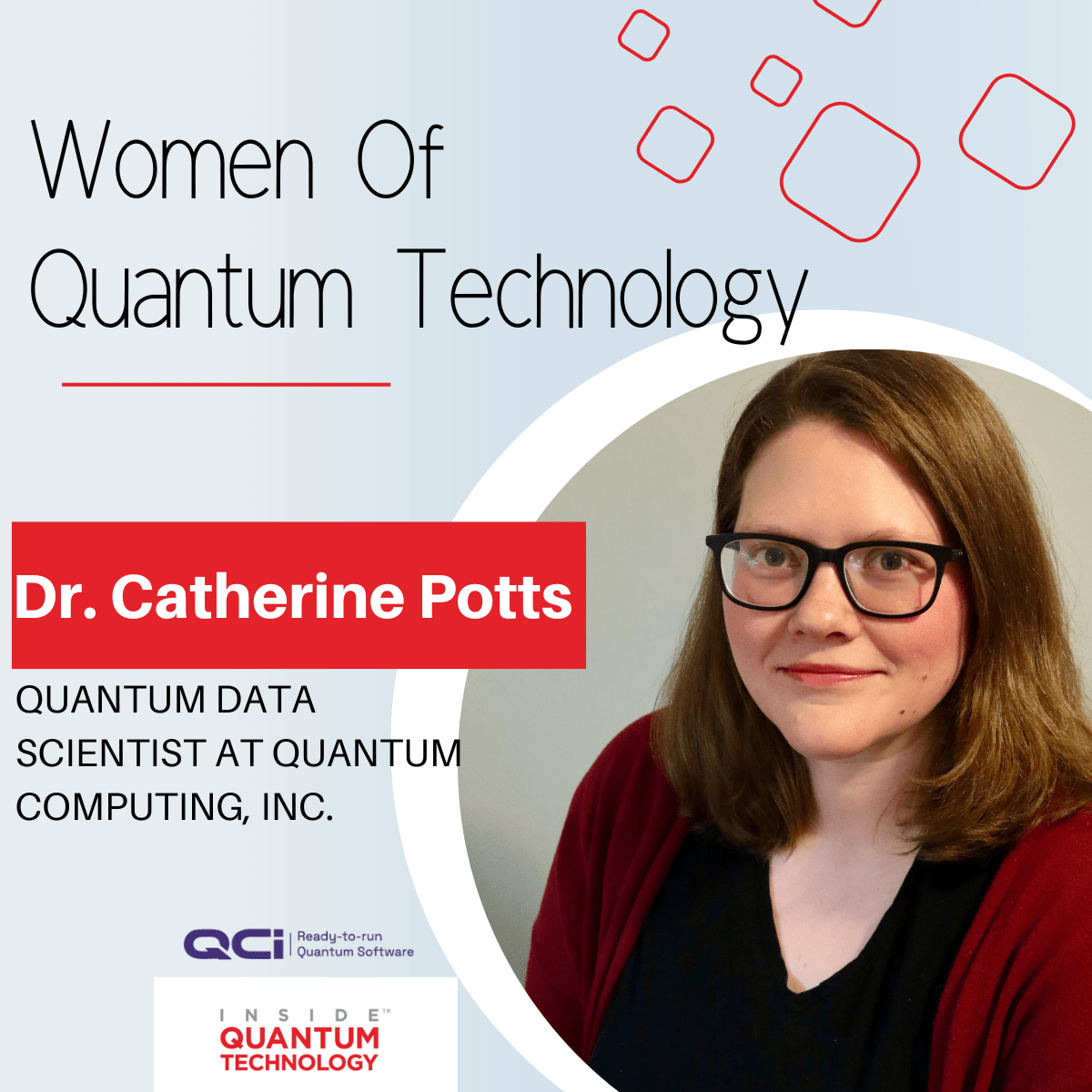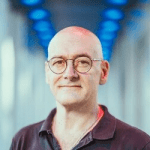Women of Quantum Technology: Catherine Potts of Quantum Computing Inc.

With the quantum industry being so new, it has become a norm to learn on the job. This allows more flexibility for individuals to try new things or create unique solutions to different design or development problems. Catherine Potts, a quantum data scientist at the company Quantum Computing Inc. certainly found this to be the case. “I actually came to quantum technology in sort of a backward way,” Potts said. “I was finishing my Ph.D. in applied mathematics and came across an internship post.” The internship was at Quantum Computing Inc., which piqued Potts’ interest. “I had never heard of quantum computing before, but was working actively with optimization type problems,” Potts stated. “So, I thought ‘okay, well, I’ll just apply and see what happens.'” And thanks to her application, Potts found herself in a whole new field focusing on cutting-edge technology.
In order to prepare for her internship, Potts did a lot of on-the-job learning. “I did a lot of deep Googling and watching lots of YouTube videos to see what I was getting myself into,” she explained. “I became fascinated with the idea of just a completely new computing paradigm. I have a little bit of a background in computer science, so I think I was a person to accept those changes very readily.” Like many other individuals starting in the industry, Potts’ internship transformed into a permanent position with Quantum Computing Inc. “I’ve been there working full time for about a year now,” Potts said. “As an intern, I did various things throughout the company, some techniques were mathematically based, and others were more software- based. It was a kind of cool introduction into the quantum computing space.” Thanks to her internship, Potts was able to hone in on unique skills perfect for a career in quantum computing.
Now as a research scientist at Quantum Computing Inc., Potts focuses on different types of projects. “I work on investigating and developing algorithms for customer problems in the QML space,” Potts explained. “I do a lot of things that are focused around data encoding. My Ph.D. was in applying and adapting machine learning algorithms to very large data sets, so I’ve been working on bringing that expertise to my position.” With her focus on quantum algorithms, Potts and her team are also trying to develop techniques to remove the need for data encoding in the algorithm, saving significant time and energy in the process. When she’s not looking at algorithms, Potts works closely with the customers of Quantum Computing Inc. As Potts explained: “when clients come to us with a desire to adopt quantum computing in their work processes, we work with them to help guide their explorations through different algorithms and different quantum technologies.” With a full schedule, Potts enjoys the diversity of her workload. “Every day is an adventure,” she added. “Not in my wildest dreams did I think I would be working on the forefront of a new technology and helping other people adapt that new technology.”
As her journey mirrors many in the quantum industry, Potts reflects on ways to make the transition smoother, which in turn can expand the industry and make it more inclusive. “There are some very significant mental barriers for women in STEM fields, not just quantum computing, although I see the same sort of barriers being put up there,” Potts stated. She elaborated on these mental barriers by explaining that it was easy for an individual to second- guess themselves or feel impostor syndrome. Potts illustrated this in her own story, as she explained: “I was fairly hesitant to look at computer science or to look at physics as viable options for my career path. I really thought that I would go into teaching math in elementary school. Even though I second-guessed almost every step, my path took me through my Ph.D. and beyond. I would have saved a bit more time if I had benefitted from a better support system or more people to look up to.” Potts’ statements echo many others in the industry who emphasize the need for more mentors and female role models. But Potts also believes that communication is key in making the industry more inclusive. “People just starting out their college education, people just finishing high school are at that target level,” she added. “There’s a huge education hurdle to overcome. It can be a little bit of a steep lift to go from no quantum computing or no physics background to actually implementing an algorithm on a machine. So, talking about quantum computing in a way that is accessible and approachable is a good place to start and there’s a lot of space to improve on that conversation.”
Kenna Hughes-Castleberry is a staff writer at Inside Quantum Technology and the Science Communicator at JILA (a partnership between the University of Colorado Boulder and NIST). Her writing beats include deep tech, the metaverse, and quantum technology.
























